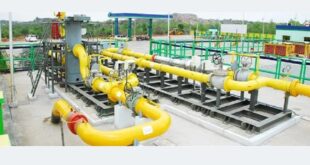- Recently, the Ministry of Consumer Affairs, Food and Public Distribution has invoked the Essential Commodities Act of 1955 to curb tur dal prices surging.
- States and Union Territories are asked to direct ‘stockholder entities to upload the data of stocks held by them’ on an online monitoring portal of the Department of Consumer Affairs, on a weekly basis.
- Tur prices have risen since mid-July 2022 amid slow progress in Kharif sowing as compared to last year 2021 due to excess rainfalls and water logging conditions in parts of major Tur growing states of Karnataka, Maharashtra and Madhya Pradesh.
- To control any unwarranted price rise in the upcoming high demand festival months, the government is taking pre-emptive steps to ensure overall availability and controlled prices of pulses in the domestic as well as overseas markets.
- To limit attempts by some sections of traders and stockists to push the price for Tur dal upwards, by resorting to ‘restricted sales’ and creating an Artificial Scarcity.
- Artificial Scarcity is the purposeful limitation of production of particular products (or services) in order to raise prices and / or demand.
Essential Commodities Act 1955
- The ECA Act 1955 was legislated at a time when the country was facing a scarcity of foodstuffs due to persistent low levels of foodgrains production.
- The country was dependent on imports and assistance (such as wheat import from the US under PL-480) to feed the population.
- To prevent hoarding and black marketing of foodstuffs, the Essential Commodities Act was enacted in 1955.
- There is no specific definition of essential commodities in the Essential Commodities Act, 1955.
- Section 2(A) of the Act states that an “essential commodity” means a commodity specified in the Schedule of the Act.
- The Act gives powers to the central government to add or remove a commodity in the Schedule.
- The Centre, if it is satisfied that it is necessary to do so in the public interest, can notify an item as essential, in consultation with state governments.
Way Forward
The ECA 1955 was brought when India was not self-sufficient in food grains production. However, now India has become surplus in most agri-commodities, and the amendments in the ECA 1955 is an important step by the government to achieve its target of doubling farmers’ income and also for ease of doing business.
SOURCE: THE HINDU,THE ECONOMIC TIMES,MINT
 Chinmaya IAS Academy – Current Affairs Chinmaya IAS Academy – Current Affairs
Chinmaya IAS Academy – Current Affairs Chinmaya IAS Academy – Current Affairs



